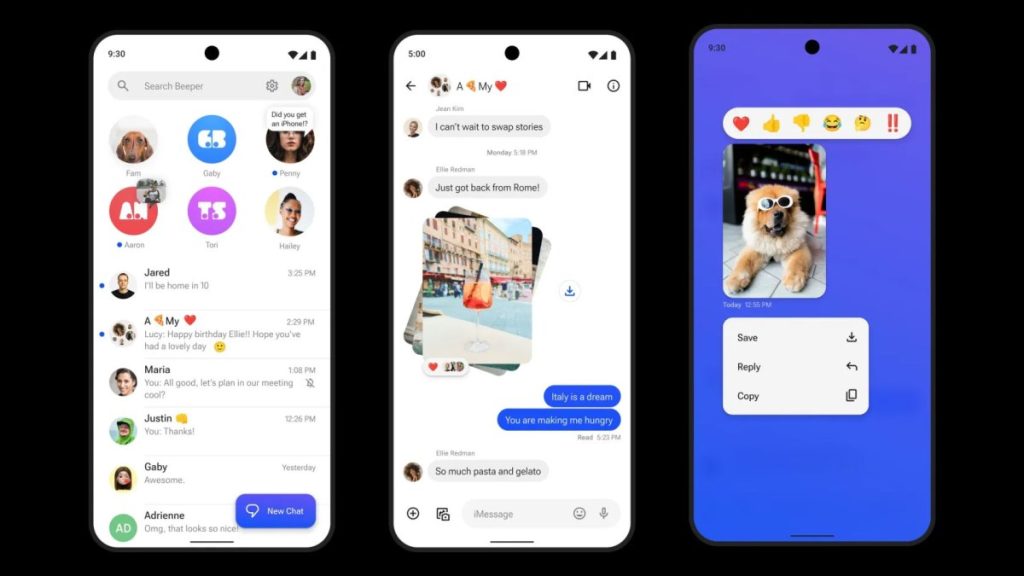DOJ Lawsuit Against Apple Cites Battle with Beeper App
The U.S. Department of Justice‘s recent lawsuit against Apple highlights the tech giant’s conflict with Beeper, an app that aimed to bring iMessage functionality to Android users. The DOJ’s complaint, filed on Thursday, alleges that Apple’s actions against Beeper exemplify the company’s control over “the behavior and innovation of third parties in order to insulate itself from competition.”
Beeper’s Efforts to Bring iMessage to Android
Founded by Eric Migicovsky, the creator of the Pebble smartwatch, Beeper successfully reverse-engineered the iMessage protocol, enabling Android users to enjoy features such as end-to-end encrypted blue bubble chats, threads, replies, read receipts, direct messages, group chats, tapback emoji reactions, and message editing. However, Apple consistently thwarted Beeper’s attempts to keep the service operational, ultimately leading to the app’s demise in late 2023.
Apple’s Security Concerns and Lawmakers’ Response
Apple justified its actions against Beeper by citing potential risks to user security and privacy, including the possibility of metadata exposure and the facilitation of unwanted messages, spam, and phishing attacks. The dispute caught the attention of a bipartisan group of U.S. lawmakers, who urged the DOJ to investigate Apple’s allegedly anticompetitive treatment of the app.
“By rejecting solutions that would allow for cross-platform encryption, Apple continues to make iPhone users’ less secure than they could otherwise be.”
FCC Commissioner’s Call for Investigation
FCC Commissioner Brendan Carr also weighed in on the matter, requesting that the agency investigate Apple’s actions through the lens of the FCC’s Part 14 rules on accessibility, usability, and compatibility.
DOJ’s Broader Accusations Against Apple
The DOJ’s lawsuit goes beyond the Beeper dispute, accusing Apple of protecting its smartphone monopoly by undermining cross-platform messaging apps and rival smartphones. The department argues that Apple is “knowingly and deliberately degrading quality, privacy, and security for its users.”
Suppression of Smartwatch Cross-Platform Compatibility
The lawsuit also alleges that Apple has suppressed smartwatch cross-platform compatibility, an issue that Migicovsky faced during his time at Pebble. The DOJ claims that Apple began limiting third-party access to new and improved APIs for smartwatch functionality following the launch of the Apple Watch in 2014. The department further accuses Apple of preventing iPhone users from responding to notifications using a third-party smartwatch and providing more limited APIs that restrict functionality compared to the Apple Watch.
The DOJ even goes as far as suggesting that Apple “copied the idea of a smartwatch from third-party developers.”
For more information on Apple’s antitrust lawsuit, explore the following articles:
- Apple sued by DOJ over iPhone monopoly claims
- DOJ claims green bubbles are an issue in Apple iPhone antitrust lawsuit
- Why Apple’s antitrust lawsuit could be a silver lining for Epic Games
- Apple’s iPhone is not a monopoly like Windows was a monopoly
- Epic, Spotify, Deezer, Match Group and others applaud DOJ’s Apple lawsuit

2 Comments
So Apple’s playing gatekeeper again, and Android users are left reading smoke signals, huh
Apple’s motto: If it’s not our garden, you’re not playing in it!